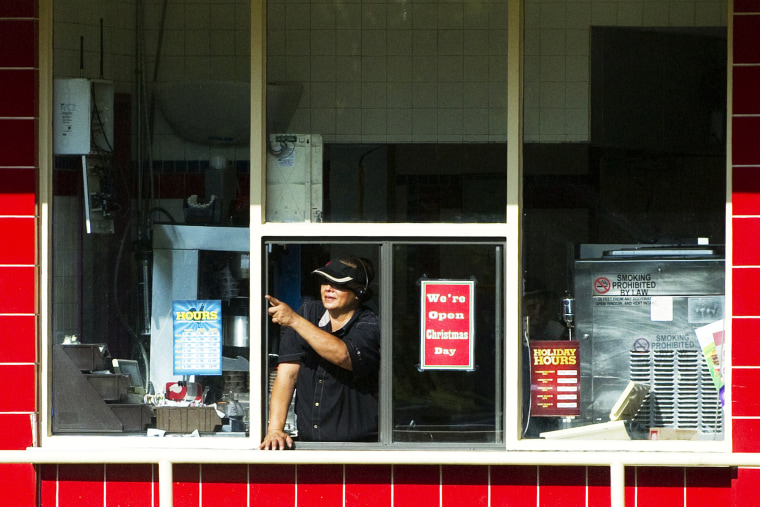Late last week, legislators in Hawaii reached an agreement to raise the state's minimum wage to $10.10 within the next four years, paving the way for ultimate passage and the governor's signature. Once the legislature approves the final bill and Democratic Gov. Neil Abercrombie signs it, Hawaii will become the third state this year to have raised its minimum wage to $10.10.
“I commend our legislators for advancing the proposal to raise Hawaii’s minimum wage to $10.10 an hour," Abercrombie said in a statement Friday. “It is imperative to provide our lowest paid workers with the economic stability and security they deserve."
Currently, Hawaii's minimum wage is $7.25, equal to the federal minimum wage. President Obama supports legislation that would hike the federal wage up to $10.10, but thus far the proposal has languished in a Republican-controlled House. In the meantime, a handful of states have been getting ahead of the federal government and raising their wage floors up to the president's favored minimum. Connecticut acted first in late March, followed by Maryland. Now it appears to be Hawaii's turn.
And unlike Maryland, which froze non-tipped compensation for tipped workers as a concession to the restaurant lobby, Hawaii is poised to give its tipped minimum wage a boost. The latter state's minimum wage deal would require employers to pay a minimum of $10.10 per hour to any tipped worker making less than $17.10 with tips; for those workers making more than $17.10 per hour, employers will be permitted to deduct a $0.75 tip credit.
The Hawaii Restaurant Association (HRA), like its sister organizations across the country, lobbied for carve outs in its state's minimum wage law. But speaking over the phone to msnbc, HRA executive director Roger Morey was subdued in his criticism of his state's minimum wage hike and waxed philosophical regarding what he saw as its inevitable passage.
"We will adjust accordingly," he said.
Hawaii's multi-billion dollar tourism industry is heavily reliant on tipped labor, which one might expect would increase the influence of industry groups which want a lower tipped minimum wage. Yet the state is also a Democratic stronghold with one of the highest unionization rates in the country; all told, more than 22% of Hawaii's workforce is unionized. Nationwide, the labor movement has been a consistent source of pressure in favor of higher state and local minimum wages.
"Politics in Hawaii is different from politics on the mainland," said Morey, laughing, in response to a question about the unusually high tipped minimum wage. "In some ways it's really, really better, but in some ways its not."
